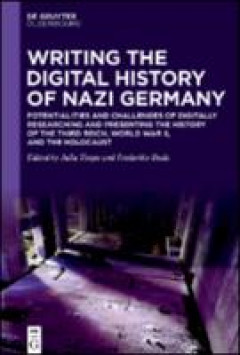Filter by

Communities and knowledge production in archaeology
The dynamic processes of knowledge production in archaeology and elsewhere in the humanities and social sciences are increasingly viewed as the collaborative effort of groups, clusters and communities of researchers rather than the isolated work of so-called ‘instrumental’ actors. Shifting focus from the individual scholar to the wider social contexts of her work and the dynamic creative pr…
- Edition
- -
- ISBN/ISSN
- 9781526134554
- Collation
- xvii, 250p. : ill.
- Series Title
- -
- Call Number
- 930.1 COM c

Learning at not-school :a review of study, theory, and advocacy for education…
A review of research on “not-school” learning that investigates what is distinctive in the quality of learning in these settings.Schools do not define education, and they are not the only institutions in which learning takes place. After-school programs, music lessons, Scouts, summer camps, on-the-job training, and home activities all offer out-of-school educational experiences. In Learning…
- Edition
- -
- ISBN/ISSN
- 9780262518246
- Collation
- vii, 92p. : ill.
- Series Title
- -
- Call Number
- 371.19 SEF l

Interdisciplinary mathematics education :a state of the art
This book provides an essential introduction to the state-of the-art in interdisciplinary Mathematics Education. First, it begins with an outline of the field’s relevant historical, conceptual and theoretical backgrounds, what “discipline” means and how inter-, trans-, and meta-disciplinary activities can be understood. Relevant theoretical perspectives from Marx, Foucault and Vygotsky ar…
- Edition
- -
- ISBN/ISSN
- 9783319422671
- Collation
- vii, 36p. ill.
- Series Title
- -
- Call Number
- 510.71 WIL i

Empire, colonialism, and the human sciences:troubling encounters in the Ameri…
For readers interested in the history of science, Indigenous studies, Latin American studies, and studies of empire and colonialism, this volume offers a revisionist history of research encounters in the human sciences in imperial and colonial contexts in the Americas and the Pacific. This title is also available as Open Access on Cambridge Core
- Edition
- -
- ISBN/ISSN
- 9781009398152
- Collation
- 388 p
- Series Title
- -
- Call Number
- 325.8 WAR e

Hunting Wildlife in the Tropics and Subtropics
The hunting of wild animals for their meat has been a crucial activity in the evolution of humans. It continues to be an essential source of food and a generator of income for millions of Indigenous and rural communities worldwide. Conservationists rightly fear that excessive hunting of many animal species will cause their demise, as has already happened throughout the Anthropocene. Many specie…
- Edition
- -
- ISBN/ISSN
- 9781316338704
- Collation
- xxi, 436 p ; ill
- Series Title
- -
- Call Number
- 333.95416 HUN

Writing The Digital History Of Nazi Germany
This book will consider how the outcomes of “doing history digitally” include different kind of sources and data, as well as new ways of researching historical questions, and innovative forms of presenting history. All contributions focus on aspects related to the history of National Socialism, World War II and the Holocaust.
- Edition
- -
- ISBN/ISSN
- 9783110714692
- Collation
- -
- Series Title
- -
- Call Number
- Berlin/Boston

Writing The Digital History Of Nazi Germany
This book will consider how the outcomes of “doing history digitally” include different kind of sources and data, as well as new ways of researching historical questions, and innovative forms of presenting history. All contributions focus on aspects related to the history of National Socialism, World War II and the Holocaust.
- Edition
- -
- ISBN/ISSN
- 9783110714692
- Collation
- -
- Series Title
- -
- Call Number
- Berlin/Boston

Ruptures :anthropologies of discontinuity in times of turmoil
Ruptures brings together leading and emerging international anthropologists to explore the concept of ‘rupture’. Understood as radical and often forceful forms of discontinuity, rupture is the active ingredient of the current sense of a world in turmoil, lying at the heart of some of the most defining experiences of our time: the rise of populist politics, the corollary impulse towards prot…
- Edition
- -
- ISBN/ISSN
- 9781787356184
- Collation
- xi, 250 p. ill;
- Series Title
- -
- Call Number
- 303.4 RUP M
 Computer Science, Information & General Works
Computer Science, Information & General Works  Philosophy & Psychology
Philosophy & Psychology  Religion
Religion  Social Sciences
Social Sciences  Language
Language  Pure Science
Pure Science  Applied Sciences
Applied Sciences  Art & Recreation
Art & Recreation  Literature
Literature  History & Geography
History & Geography